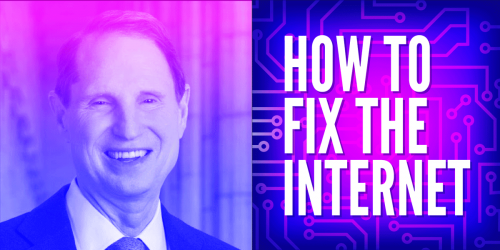UPDATE: On December 5, 2024, the California Court of Appeals denied Snap's petition.
EFF legal intern Jack Beck contributed to this post.
A California trial court recently departed from wide-ranging precedent and held that Snap, Inc., the maker of Snapchat, the popular social media app, had created a “defective” product by including features like disappearing messages, the ability to connect with people through mutual friends, and even the well-known “Stories” feature. We filed an amicus brief in the appeal, Neville v. Snap, Inc., at the California Court of Appeal, and are calling for the reversal of the earlier decision, which jeopardizes protections for online intermediaries and thus the free speech of all internet users.
At issue in the case is Section 230, without which the free and open internet as we know it would not exist. Section 230 provides that online intermediaries are generally not responsible for harmful user-generated content. Rather, responsibility for what a speaker says online falls on the person who spoke.
The plaintiffs are a group of parents whose children overdosed on fentanyl-laced drugs obtained through communications enabled by Snapchat. Even though the harm they suffered was premised on user-generated content—messages between the drug dealers and their children—the plaintiffs argued that Snapchat is a “defective product.” They highlighted various features available to all users on Snapchat, including disappearing messages, arguing that the features facilitate illegal drug deals.
Snap sought to have the case dismissed, arguing that the plaintiffs’ claims were barred by Section 230. The trial court disagreed, narrowly interpreting Section 230 and erroneously holding that the plaintiffs were merely trying to hold the company responsible for its own “independent tortious conduct—independent, that is, of the drug sellers’ posted content.” In so doing, the trial court departed from congressional intent and wide-ranging California and federal court precedent.
In a petition for a writ of mandate, Snap urged the appellate court to correct the lower court’s distortion of Section 230. The petition rightfully contends that the plaintiffs are trying to sidestep Section 230 through creative pleading. The petition argues that Section 230 protects online intermediaries from liability not only for hosting third-party content, but also for crucial editorial decisions like what features and tools to offer content creators and how to display their content.
We made two arguments in our brief supporting Snap’s appeal.
First, we explained that the features the plaintiffs targeted—and which the trial court gave no detailed analysis of—are regular parts of Snapchat’s functionality with numerous legitimate uses. Take Snapchat’s option to have messages disappear after a certain period of time. There are times when the option to make messages disappear can be crucial for protecting someone’s safety—for example, dissidents and journalists operating in repressive regimes, or domestic violence victims reaching out for support. It’s also an important privacy feature for everyday use. Simply put: the ability for users to exert control over who can see their messages and for how long, advances internet users’ privacy and security under legitimate circumstances.
Second, we highlighted in our brief that this case is about more than concerned families challenging a big tech company. Our modern communications are mediated by private companies, and so any weakening of Section 230 immunity for internet platforms would stifle everyone’s ability to communicate. Should the trial court’s ruling stand, Snapchat and similar platforms will be incentivized to remove features from their online services, resulting in bland and sanitized—and potentially more privacy invasive and less secure—communications platforms. User experience will be degraded as internet platforms are discouraged from creating new features and tools that facilitate speech. Companies seeking to minimize their legal exposure for harmful user-generated content will also drastically increase censorship of their users, and smaller platforms trying to get off the ground will fail to get funding or will be forced to shut down.
There’s no question that what happened in this case was tragic, and people are right to be upset about some elements of how big tech companies operate. But Section 230 is the wrong target. We strongly advocate for Section 230, yet when a tech company does something legitimately irresponsible, the statute still allows for them to be liable—as Snap knows from a lawsuit that put an end to its speed filter.
If the trial court’s decision is upheld, internet platforms would not have a reliable way to limit liability for the services they provide and the content they host. They would face too many lawsuits that cost too much money to defend. They would be unable to operate in their current capacity, and ultimately the internet would cease to exist in its current form. Billions of internet users would lose.









